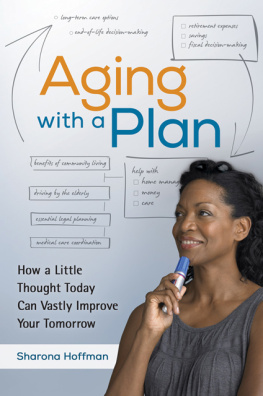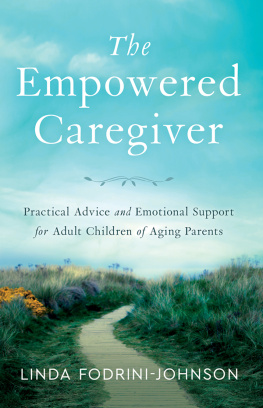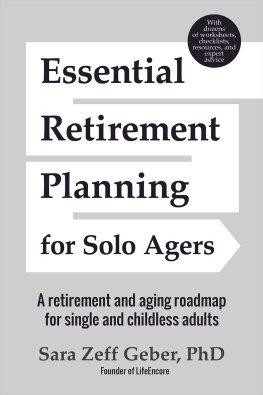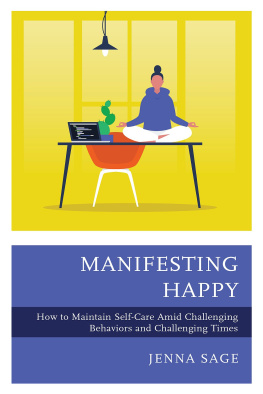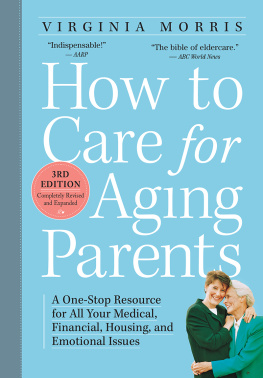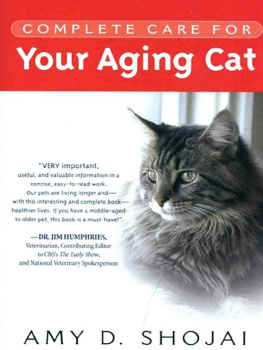Many of the designations used by manufacturers and sellers to distinguish their products are claimed as trademarks. Where those designations appear in this book and Da Capo Press was aware of a trademark claim, the designations have been printed in initial capital letters.
Hachette Book Group supports the right to free expression and the value of copyright.
The purpose of copyright is to encourage writers and artists to produce the creative works that enrich our culture.
The scanning, uploading, and distribution of this book without permission is a theft of the authors intellectual property. If you would like permission to use material from the book (other than for review purposes), please contact permissions@hbgusa.com. Thank you for your support of the authors rights.
Published by Da Capo Press, an imprint of Perseus Books, LLC, a subsidiary of Hachette Book Group, Inc.
The publisher is not responsible for websites (or their content) that are not owned by the publisher.
for which your future self will be extremely grateful.
A lmost every daybarring overextended itineraries (mine) and medical emergencies (his)I log into my computer in the wee hours of the morning to video chat with Martin K. Bayne, my dear and longtime friend. He is an MIT graduate, journalist, and former Buddhist monk. He is also unmarried and childless.
At the peak of his professional career, Marty was diagnosed with early-onset Parkinsons disease. He was fifty-three. With no other choice but to move into an assisted living community, he knew that this housing decision would challenge him every waking moment to stay alive, let alone remain vital.
For the past sixteen years, he has been at the mercy of a call button that is answered by complete strangers. His fellow residents are on average aged eighty-five years and older, the majority of whom are living with the symptoms of dementia. As his chronic conditions worsen, so goes the freedom to come and go where he wants when he wants. To date, Marty has been evicted from three different assisted-living facilities when they can no longer care for him at the level he requires. He is trying desperately to avoid moving into a nursing home.
As a resident of assisted living, what he hadnt calculated is the depth of the daily, relentless exposure to despair, disease, dementia, dying, and death. Thats where I come in. Marty tells me that he would have given up on living long ago if it were not for our friendship. When we are not talking about what is happening in his world, I do my best to balance the relationship by bringing what is happening on the outside to him. By way of my smartphone, Marty and I often take virtual walking excursions to my favorite local attractions. After one such visit to Chicagos Lincoln Park Zoo where I paused to greet a gathering of gorillas, he nicknamed me Fear Swallower. When I see people walking and playing in the park, I stop and ask them to say hi to Marty. They love it, and of course, their enthusiastic, Hi, Marty! greetings make his day. We enjoy these outdoor adventures immensely. I depend on Marty every bit as much as he depends on me. While I offer him companionship and insights into my world of family and work, he is my teacher and voice of reality when it comes to aging alone. You cant possibly understand, Joy, what my life is like. As a relatively younger assisted-living housing insider, he says these words to me frequently when he is trying to make a point. Hes right: I cant possibly understand what his life is like. I have never been that sick and that alone.
I have no voice, Marty said to me one morning. I asked him to explain. The night before, he and the administrator of the assisted-living community had a difference of opinion about a particular resident policy. Marty challenged him, saying, Thats not fair. You get to go home every day at five oclock, but this is my home. The administrator stood up, pointed his finger at him, and roared, This is not your home. You just lease an apartment here like everybody else. At that moment, Marty realized he was alone, ill, and without the comfort and support of an on-site advocate. His spirit was broken.
Marty never fails to keep me grounded in the realities of aging alone. The essence of each conversation is not the subject matter, but rather the sharing of experiences with someone who genuinely cares about the big and little things in life that you wouldnt share with just anyone. I know now that if I have a friend like Marty in my life when I am old and alone, I will be able to get through anything that life dishes out. Marty is my trusted lifeline and shows me just how important our relationships are as we ageand how many challenges there can be to sustaining them.
Whether you have a Marty in your life right now or not, you have chosen this book for good reason. Perhaps, like Marty, you dont have children to call upon for help; perhaps youre like me, married now, and also wondering who will be available, able, or even willing to step in when necessary. But no matter what your situation, you have questions on how your life will change as you grow older. Are you ready for what the upcoming years have in store?
Join the Club
If you are living solo, you are not alone in this trend. One in three baby boomers falls into the category of separated, divorced, widowed, or never married. As the numbers continue to escalate, millions of people over the age of sixty-five will require greater assistance because they are aging alone with no known family member or surrogate to act on their behalf.
Committed couples, you arent out of the woods, either. If one partner suffers from a chronic illness, the other partner typically represents the first line of defense. However, when both need care simultaneously, all bets are off. As people make their way from adulthood through elderhood, the unmarried category will grow as individuals continue to experience divorce and widowhood.
Nor is being a parent a guarantee that adult children will care for you as you age. Children may choose to move away from parents (even a half-world away) to pursue dreams of their own; and they are also known to return home with little to no resources.
Simply put, you have no idea whether anyone you love and trust today will accompany you on your aging journey or be by your side up to and until you take your final breath. If you currently have a close network of family and trusted friends, and feel confident that they will be there for you any time of the day and night, then count your blessings. As your personal network evolves due to death or other extenuating circumstances, you can continue to use your relationship-building skills to develop new and rewarding alliances. If you prefer a more insular and solitary lifestyle, you may unknowingly be choosing to go it alone during uncertain times.
Let me be clear from the get-gomarriage is not the goal of this book by any means. Aging solo is the conscious choice of many and deserves its rightful status in society. If marriage (and partnering) is not, and has never been, a desire of yours, this would be a good time to update your language when referring to your preferred living situation. The use of the word


